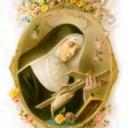Yahoo Answers is shutting down on May 4th, 2021 (Eastern Time) and the Yahoo Answers website is now in read-only mode. There will be no changes to other Yahoo properties or services, or your Yahoo account. You can find more information about the Yahoo Answers shutdown and how to download your data on this help page.
Trending News
BIBLE SCHOLARS: Catholic Bible vs Protestant Bible - were books added, or removed?
OK, so we all know that the bible was assembled somewhere around the 3rd century by a panel of guys probably tired of having all these fragments, letters, etc. floating around, with nobody having a complete collection.
They decided what they thought was scripture, and what wasn't, and rejected the stuff not deemed to be 'up to par'.
Here's my question:
The Catholics have all these 'extra books' in their bible - were those books included from the beginning, and the Protestants later edited them out?
Or is the Protestant Bible what the original Bible was (as far as what books were included - I'm obviously not talking about translations in any way here), and the Catholics added their books to it later?
Or does anyone even have any accurate idea what the Bible consisted of after the council assembled it?
13 Answers
- Anonymous1 decade agoFavorite Answer
OK - here's the honest answer.
The biblical canon (list of Scriptures) that became the one used in the very first book known *as* "the bible" was the one agreed upon at the council of Carthage in 397 C.E. (Note: they were ratifying a biblical canon produced at the synod of Hippo in 393 C.E.) Let's call it the Carthage biblical canon (Cbc). The Cbc is identical to the modern Roman Catholic biblical canon (RCbc) except that the Cbc does not include the book of Baruch.
Our earliest complete Latin Vulgate, the 8th century Codex Amiatinus, follows the Cbc exactly.
In 1534, Luther produced his own bible. His bible included the entire Cbc *plus* the book of Baruch. However, Luther created a separate section he titled "Apocrypha" and into which he placed all of the Old Testament Scriptures that are not considered authentic by the Jews. Luther wrote that these Scriptures were not inspired - and so not appropriate for the formation of Christian doctrine - but that they were useful for study. Luther never removed the Apocrypha from any edition of his bible, including the one that was published after his death.
In 1535, the first printed complete English bible was published, Coverdale's Bible. It included the Cbc, Baruch *and* 3 additional Scriptures. It followed Luther's invention of separating those Old Testament Scriptures not accepted by the Jews into a section titled "Apocrypha". This is the foundation for what we (English speakers) call the Apocrypha. These "extra Scriptures", if you want to call them that, had been included as a standard part of the Latin Vulgate for centuries, which is why they were retained in Coverdale's bible. Luther weeded the least respectable out, which is why the English bible has 3 more Scriptures than the Luther bible.
In 1563, the Convocation of Canterbury formally established the English biblical canon (listing each Scripture by name). It included the entire English Protestant Apocrypha, and (in agreement with Luther) noted that the Scriptures of the Apocrypha were not inspired but were useful for study.
In 1564, the Roman Catholic Church determined the modern RCbc. It follows the Cbc with the addition of Baruch - interestingly, exactly the combination Luther chose. Also interesting: the pope asked that the remaining 3 Scriptures (now formally determined to be unauthentic) continue to be included in bibles so that they not be lost to future generations. This request was honored, and for nearly 200 years no Roman Catholic bible was published without those 3 extra Scriptures in an appendix.
According to the HarperCollins Bible Dictionary, the first group (in any language) to publish a bible without the Scriptures of the Apocrypha was the Puritans in the 1590s. This practice caught on later (much later) with other Protestant sects and in other languages.
In the early 1600s, in response to the Puritan rejection of the Apocrypha, a law was enacted in England **forbidding** the publication of any bible without the Apocrypha. All English bibles up to and including the King James Version include the entire English Protestant Apocrypha. Later England-approved bibles (such as the Oxford Revision of 1769, now known as the "Standard Text" of the King James Version, the Revised Version, the New English Bible and the Revised English Bible) also include the entire English Protestant Apocrypha.
NOTE - here I would like to point out a "hole" in my analysis. Sometime between the publication of Codex Amiatinus in the 8th century and the Luther bible in 1534, the book of Baruch came to be viewed as an authentic Scripture. Also, sometime during this period Baruch, 1 & 2 Esdras and the Prayer of Manasseh all became a "standard" part of the Latin Vulgate, which is why they are included in Coverdale's and later English bibles, and why the pope of the council of Trent asked that they continue to be included in bibles.
I have NOT been able to determine when it was that these 4 Scriptures began to be considered a "standard" part of the Latin Vulgate. Clearly, though, by the time of Protestant Reformation all 4 of them were included as a matter of course, and clearly this was not the case in the 8th century.
SO - the conclusion is as follows:
Roman Catholics added one Scripture to the traditional biblical canon - the book of Baruch - formally in 1564. For an unknown period of time, they also included 1 & 2 Esdras and the Prayer of Manasseh in their bibles, but never formally identified those Scriptures as authentic.
Protestants removed the entire Apocrypha first in the 1590s - not Luther! - but this practice seems not to have caught on among Protestant groups in general until at least the mid-1700s. In other words, those Protestant groups who *have* removed the Apocrypha did so after decades (for the Puritans) or centuries (for the others) of inclusion. More: all but 4 of the Scriptures of the Apocrypha had been included in Christian bibles since the very first book known as the bible, the Latin Vulgate, was published about 405 C.E.
So the Protestants removed many Scriptures traditionally accepted as part of the bible. The Roman Catholics added one.
- ?Lv 45 years ago
"did Protestant remove books from the bible or catholics added them?" Protestants without any authority from Christ have removed seven books of the Bible from the Old Testament. These books are called the Deuterocanonical books. "whether it was added or removed, didnt protestants kept the one that was divenely inspired and non-apocryphal?" No! "doesnt it make more sense to keep the most accurate and only the divinely inspired scripture?" Of course, tell it to the Protestants. "why Catholics decided to add the extra 15 books which pretty much make Catholicism and protestanism different in some beliefs and doctrines that catholicism has." The Church is the authority that canonized the Christian Scriptures 1750 years before the Protestants removed 7 entire books from the Old Testament. As far as the difference in doctrines the Bible explains it like this...It says that the time will come when some will no longer be able to endure the sound doctrine of the Church and will seek out false teachers that satisfy their itching ears. This is the prophecy of the Protestant rebellion of the Church. God bless! In Christ Fr. Joseph
- The Dark SideLv 71 decade ago
The Hebrew bible contains the same books as the protestant old testament. A translation of this was done into Greek in the 3rd-1st centuries BCE (called the Septuagint as it was traditionally made by 72 scholars), and somehow it came to have extra books included in it. The catholic church has always taken most of these extra books as part of its bible, while the orthodox and coptic churches use all of them (so their bible is even bigger than the catholic one).
It was Martin Luther who took the decision to exclude all the books that weren't in the original Hebrew bible and is thus responsible for the protestant bible being shorter.
- 1 decade ago
The African Synod of Hippo, in 393, approved the New Testament, as it stands today, together with the Septuagint books, a decision that was repeated by Councils of Carthage in 397 AD and 419 AD.
The Council of Carthage (397 AD) (Protestants did not exist at the time) issued the official Canon of the Bible quoted as:
"Genesis, Exodus, Leviticus, Numbers, Deuteronomy, Joshua son of Nun, Judges, Ruth, 4 books of Kingdoms, 2 books of Chronicles, Job, the Davidic Psalter, 5 books of Solomon, 12 books of Prophets, Isaiah, Jeremiah, Daniel, Ezekiel, Tobias, Judith, Esther, 2 books of Ezra, 2 books of Maccabees, and in the New Testament: 4 books of Gospels, 1 book of Acts of the Apostles, 13 letters of the Apostle Paul, 1 letter of his to the Hebrews, 2 of Peter, 3 of John, 1 of James, 1 of Jude, and one book of the Apocalypse of John."
Note that some of the books listed are not found in Protestant Bibles.
- DeathProofLv 51 decade ago
The Protestant Bible has books removed from the original Bible, happened during the reformation era
Source(s): Catholic - MistyLv 71 decade ago
The Protestant reformers removed books from the Bible.
- CoreyLv 71 decade ago
They were included when the Old Testament was canonized, since they were in the Septaguint. They were removed later by protestants and the orthodox church, probably because they are not in the Hebrew Bible (Tanakh).
- Anonymous1 decade ago
The Catholic Bible is older than any of the Protestant Bibles, but there are Bibles older yet. Most people forget about the Coptics and the Eastern Orthodox. Both are as old, if not older than the Catholic Church.
- Anonymous1 decade ago
Catholics canonized writings that were not canonized by Jews but were studied and considered historically important





